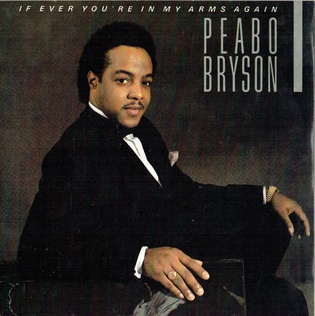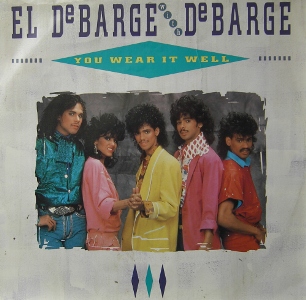
"Ain't That Peculiar" is a 1965 song recorded by the American soul musician Marvin Gaye for the Tamla (Motown) label.

"Controversy" is a song by American musician Prince, the lead single and title track to his 1981 album. The song addresses speculation about Prince at the time such as his sexuality, gender, religion, and racial background, and how he could not understand the curiosity surrounding him.

"Do I Do" is a song written and performed by American singer and songwriter Stevie Wonder, first released in 1982 on the compilation album, Stevie Wonder's Original Musiquarium I (1982). The single peaked at #2 on the US Billboard soul chart and #13 on the Billboard Hot 100. On the Billboard dance chart, "Do I Do" reached number one for two weeks. Overseas, it reached #10 in the UK.
"Little Darling (I Need You)" is a 1966 single written and produced by Holland-Dozier-Holland and recorded and released by Marvin Gaye on the Tamla label.

"Ai No Corrida" is a song by the English singer and multi-instrumentalist Chaz Jankel, written by Jankel and Kenny Young. The title is based on the Japanese title of the erotic film In the Realm of the Senses. It was first recorded in 1980 and featured on Chaz Jankel's debut studio album Chas Jankel for A&M Records.

"I'll Be Good to You" is a 1976 hit song by R&B duo the Brothers Johnson. George Johnson, one of the two Johnson brothers in the band, wrote the song after deciding to commit to a relationship with one woman, instead of dating several at a time. While George was recording a demo for the song, family friend Senora Sam came by and added some lyrics. Brothers Johnson producer and mentor Quincy Jones heard the song, liked it, and convinced George to sing lead on the finished track. Released from their debut album, Look Out for #1, it was a top-ten hit on the Billboard Hot Singles Charts, peaking at number three, and a number one song on the Billboard R&B Charts during the summer of 1976. The single was later certified gold by the RIAA.
"Lovely One" is a funk single released by American family group the Jacksons in September 1980.

"Time Will Reveal" is a single by DeBarge and released in September 1983 as the first single off the group's third album, In a Special Way on the Gordy label. It was also the group's biggest hit prior to the group's 1985 hit, "Rhythm of the Night".
"Call Me" is a song written and recorded by American singer Aretha Franklin. The song was co-produced by Jerry Wexler, Tom Dowd and Arif Mardin.

"If Ever You're in My Arms Again" is a 1984 song recorded by American contemporary R&B singer Peabo Bryson. Released as a single from his album Straight from the Heart, the single peaked at number 6 on the R&B chart and was Bryson's first Top 10 single on the Billboard Hot 100 chart, where it peaked at number 10 during the summer of 1984. It also spent four weeks at number 1 on the adult contemporary chart.

"It's a Disco Night " is a 1979 club hit for The Isley Brothers, released on their T-Neck label as the second single from their gold-certified album Winner Takes All. The song is notable for being one of the few disco-based songs the Isley Brothers released. Beforehand, the group were known for their mixture of funk, rhythm and blues and rock. The song was led by brother Ronald Isley while his brothers Kelly and Rudolph Isley chanted "rock don't stop" in the background. The song briefly charted on the Billboard Hot 100 peaking at number 90, hitting number 27 on the R&B chart. Outside the US, "It's a Disco Night" reached number 14 on the UK Singles chart.

"You Wear It Well" is a song recorded by DeBarge for the Gordy label. It was released as the third single off their fourth album, Rhythm of the Night; the single release was credited to "El DeBarge with DeBarge."
"Jump to It" is a 1982 song by American recording artist Aretha Franklin. The track is from her Gold-certified 1982 album of the same name, produced by Luther Vandross. The song was written by Vandross and Marcus Miller and features background vocals performed by Vandross and Cissy Houston. The single reached No. 1 on Billboard's Hot Soul Singles chart, remaining there for four consecutive weeks.
"Happy People" is a 1974 single by The Temptations, co-written by Lionel Richie. It was the first single from the album A Song For You. In the United States, the single went to #1 on the R&B chart and #40 on the Billboard Hot 100 singles chart. "Happy People" also peaked at #11 on the disco/dance chart. The single was the first Temptations release without the guidance of Norman Whitfield since 1966.
"K.I.S.S.I.N.G." is a 1988 single by singer/songwriter Siedah Garrett, taken from her album Kiss of Life. The single was her most successful release as a solo artist, hitting number one on the dance chart for one week. On the soul chart, "K.I.S.S.I.N.G." peaked at number sixteen and on the Billboard Hot 100, it went to number ninety-seven.
"Once You Get Started" is a horn-driven funk number written by musician Gavin Christopher, and recorded and released by the band Rufus featuring Chaka Khan in late 1974. The song is led mostly by Khan, though fellow group member Tony Maiden contributed lead vocals for the song's second verse. It helped to make their third album Rufusized go platinum. "Once You Get Started", peaked at number ten on the Billboard Hot 100 in 1975, giving the group their second top ten single and third top forty single overall. The song also hit number-four on the Hot Soul Singles chart as well as number six on the Record World, Disco File Top 20 chart.

"Don't Make Me Wait For Love" is a song by Kenny G featuring Lenny Williams on lead vocals—the first single released from Kenny G's 1986 album Duotones. The song was written and composed by Walter Afanasieff, Preston Glass and Narada Michael Walden.
"The Secret Garden (Sweet Seduction Suite)" is a song by Quincy Jones, featuring Afro-American R&B singers Al B. Sure!, James Ingram, El DeBarge, and Barry White. It was released as a single from Jones's album, Back on the Block (1989), and peaked at number one on the Billboard Black Singles chart for one week in 1990. It also reached number 31 on the Billboard Hot 100, number 26 on the Adult Contemporary chart, and number 67 on the UK Singles Chart. "The Secret Garden (Sweet Seduction Suite)" was written by Jones, Rod Temperton, Siedah Garrett and DeBarge and produced by Jones.

"Just Once" is a 1981 single released from Quincy Jones' album The Dude on A&M Records. The song features James Ingram on vocals, and reached number 17 on the Billboard chart in the summer of 1981. Ingram's singing was nominated for Best Male Pop Vocal Performance at the 1982 Grammy Awards.

"One Hundred Ways" is a 1981 single released from Quincy Jones's album The Dude on A&M Records. The song features James Ingram on vocals. The song reached number 14 on the U.S. Billboard Hot 100 in 1982. It was a bigger Adult Contemporary hit, reaching number five in the U.S. and number six in Canada. "One Hundred Ways" received the 1982 Grammy Award for Best R&B Vocal Performance.











